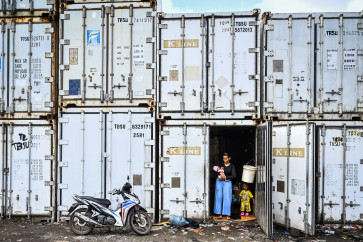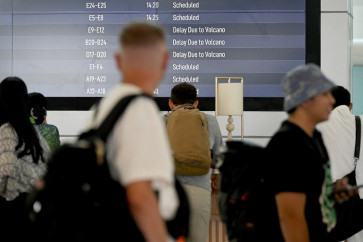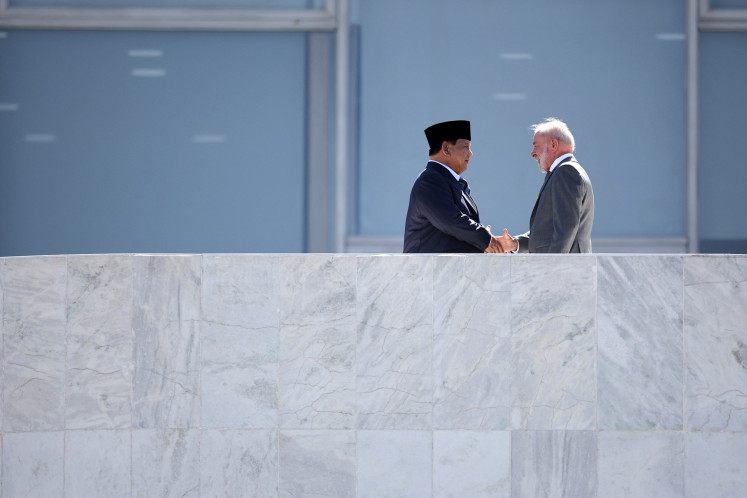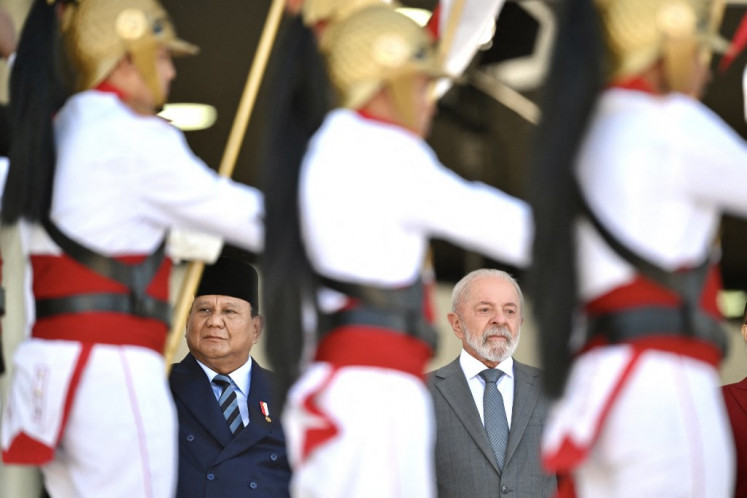Popular Reads
Top Results
Can't find what you're looking for?
View all search resultsPopular Reads
Top Results
Can't find what you're looking for?
View all search resultsOil firms delay projects amid falling oil prices
As the tumbling global oil price brings more pressure to a number of projects in the country, major oil and gas companies plan to reduce spending and delay capital-intensive works
Change text size
Gift Premium Articles
to Anyone
A
s the tumbling global oil price brings more pressure to a number of projects in the country, major oil and gas companies plan to reduce spending and delay capital-intensive works.
The Indonesian Petroleum Association's (IPA) director, Lukman Mahfoedz, said the decline in oil prices of around 40 percent starting in June has forced companies to recalculate their spending for next year.
'The spending for capital expenditure will need to be lowered by around 20 percent compared to this year,' Lukman said after an IPA annual general meeting on Tuesday.
Moreover, he said, the realization of planned investment by oil and gas contractors this year would likely also miss the target allocation.
Under the work-plan figures from the Upstream Oil and Gas Regulatory Special Task Force (SKKMigas), oil and gas companies in the country have proposed a total investment of US$25.6 billion this year.
Oil prices fell to lowest level in five years on Tuesday. Figures from Bloomberg showed that the benchmark Brent crude oil was as low as $65.29 per barrel, the lowest since September 2009. Meanwhile, another benchmark WTI for January settlement touched $63 per barrel.
The global oil glut, particularly due to the US' oil boom and rejection from other producers to cut output, is the main factor of the declining prices.
The weakening oil price is estimated to stay until the Organization of Petroleum Exporting Countries (OPEC) agrees to change its output policy and lower the supply ceiling from currently 30 million barrels per day, analysts have said.
Energy research firm Wood Mackenzie's upstream manager for southern and southeastern Asia, Andrew Harwood, said Indonesia's offshore new projects would be at high risks with the current price level.
'Projects which are most at risk would be those that have not started development, those that are mature or those that are technologically challenging and therefore high cost. The biggest of these projects would be IDD, Abadi, Muara Bakau and Offshore North West Java,' Harwood said.
He pointed out that capital-intensive projects such as the deep-sea natural gas project called Indonesia Deepwater Development (IDD) by Chevron located east of Kalimantan island and the development of Abadi field at Masela block by Inpex located in Arafura sea would require an oil price above $80 per barrel to generate a 10 percent rate of return.
Chevron is currently working on a new development plan, which is expected to make the projects cost higher partly because the company has to deal with bigger reserves. Thus, it is expected to delay completion of the project.
Meanwhile, most onshore developments would remain economical at the current oil price.
Wood Mackenzie estimates that almost all onshore production will generate a rate of return of 15 percent or more at an oil price of $60 per barrel, meaning that onshore projects in Indonesia will remain economical at the current price level. Moreover, some of onshore projects will still be economical at $40 per barrel.
IPA newly-appointed president Craig Stewart said the current low price would also be a challenge for old fields.
'Most old PSCs [production sharing contracts] require a huge amount of capital investment to maintain production. They have to look at incremental investment to sustain production and each of those investments will have a break-even-price,' Stewart said.










